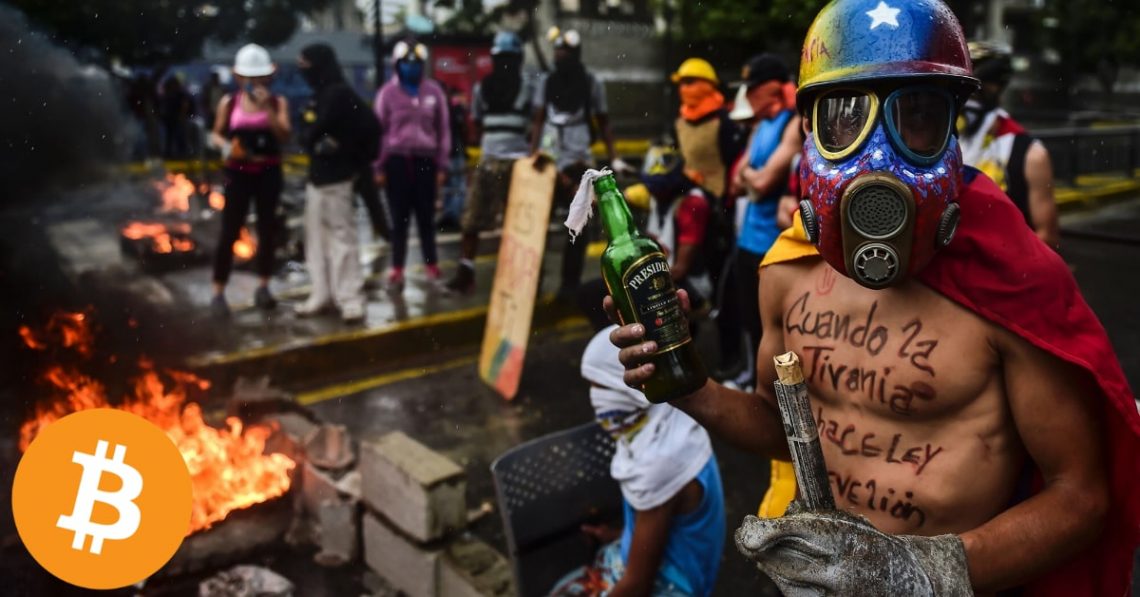Everything Has a Shelf Life
Don’t get me wrong, this place is my home and I love being here. In my experience, everything has a shelf life. Especially in times of bonanza.

Capital Thinking • Issue #573 • View online
Much of Venezuela’s meteoric economic rise and fall can be traced back to 1922 where it found its own version of Black Gold / ‘Texas Tea’ which was nationalised in the 70s.
Black Gold, which is typically seen as the escalator to economic prosperity for forward-thinking, US-friendly nation states, in hindsight has been reflected on as a resource curse for Venezuela, who with a heavy reliance on oil has gone from being one of the richest countries in South America pre-80s to being one of the poorest and most dangerous in the current age.
With a poverty rate estimated by the UN at 94%, there are millions who have fled to greener pastures overseas to escape the economic and social collapse of their homeland.
One such fellow is Carlos.
-Jon De Wet
Colliding Brain Cells with a Savvy Venezuelan (Part 1)
Jon De Wet | Capitalist Exploits:
In this article we travel into the mind, the history and background of a Venezuelan, that for privacy reasons we shall call Carlos (which according to a non-descript website during a quick Google, is widely regarded as Venezuela’s most popular boy’s name).
Carlos is widely travelled, an early investor, trader and educator in BTC and other alternative assets, and is an avid believer in individual sovereignty.
In part one of the interview we will be kicking into some stories of Carlos’ upbringing in Venezuela and some of the differences in living in Australia as well; the Venezuelan economy and hyperinflation; Bitcoin, the fundamentals and why Carlos is a believer; his diversification into other forms of value and wealth preservation; and in part two of the interview, we’ll expand on how Carlos and other Venezuelans not only diversify and hedge against inflation, but also the creative ways in how they do it; some other stories from Carlos’ life in Venezuela; the plundering of Venezuela’s resources and riches; and finally, which is absolutely crazy, how the President, Nicolas Maduro made the DEA’s hitlist, and made otherworldly wealth frontrunning the cocaine cartel Cártel de Los Soles, or “Cartel of the Suns”.
Lots of interesting stories, that makes living in Australia through COVID-19 seem like a holiday!
Before launching into it, and to get a brief understanding of Venezuela, here is some important information and trivia for further pondering:
- Venezuelans are typically found in Venezuela, and they’re actually named after the country they live and/or were born in
- They have a population of roughly 28.5 million;
- Venezuela’s biggest export is cocaine, which is shipped to America by direct order of ‘President’ Maduro and the ‘Cartel of The Suns’’. There is currently a $15 million reward for information leading to his arrest – https://www.dea.gov/press-releases/2020/03/26/nicolas-maduro-moros-and-14-current-and-former-venezuelan-officials
- Venezuela’s second biggest export is oil and they are a founding member of OPEC. They also have the world’s largest oil reserves;
- Their third biggest export is without a doubt, Beauty Pageant Queens. They are the undisputed Queen of the Beauty Pageant world – they have won 7 Miss Universe titles and 6 Miss World titles. You can’t argue with science;
- They have the world’s highest uninterrupted waterfall – Angel Falls. If you’ve seen the remake of Point Break, then you would have seen Bodhi and Grommet as part of the Ozaki 8 (8 extreme ordeals), free solo climb Angel Falls with Johnny Utah in close pursuit. Grommet really should not have attempted it – he died. In the spirit of life, Grommet should have trained harder. Bodhi soldiers on and ends up completing this ordeal. Utah rads out with his blonde locks. Pro Tip: Watch the original.
- Venezuela is regularly listed as one of the most dangerous countries to live in and has one of the highest murder rates in the world. The Venezuelan Violence Observatory states that there were 16,506 murders last year – that is basically 45.22 murders a day.
- According to the IMF (that benevolent virus that just keeps giving) Venezuela had the highest inflation rate in the world in 2019 – just check the graph below. Good times!
Much of Venezuela’s meteoric economic rise and fall can be traced back to 1922 where it found its own version of Black Gold / ‘Texas Tea’ which was nationalised in the 70s.
Black Gold, which is typically seen as the escalator to economic prosperity for forward-thinking, US-friendly nation states, in hindsight has been reflected on as a resource curse for Venezuela, who with a heavy reliance on oil has gone from being one of the richest countries in South America pre-80s to being one of the poorest and most dangerous in the current age.
With a poverty rate estimated by the UN at 94%, there are millions who have fled to greener pastures overseas to escape the economic and social collapse of their homeland.
One such fellow is Carlos.
So Carlos, I grew up in NZ and Australia, you grew up in Venezuela, what’s that all about?
Haha, I did grow up there.
You know, the one feeling I remember having always as a child was fear. I was always scared.
The economy was always worsening, everyone around seemed to be getting kidnapped. It felt like a catastrophe was one mistake away.
I was always worried about getting shot. I have some vivid memories of the first time I saw a shooting.
It was my eighth birthday and my godmother took me out to buy my first cake. All of a sudden I started hearing gunshots outside the bakery and I dropped my f*cking cake.
Someone pushed me behind the counter so I could hide, dropping my cake. I was so angry because all along I thought they were just fireworks (and I wasn’t allowed to eat cake very often). At the end of it all I remember everyone just went about their business as soon as the gunshots stopped like nothing had happened.
We walked outside and I remember seeing a few bodies laying on the ground and thinking ‘Oh, so those weren’t fireworks’.
I had 3 kidnapping attempts happen to me before I was 18 and I was shot at over 3 times by the time I was 20. Bare in mind I’m probably the most boring Venezuelan you’ll ever meet. I wasn’t a tough guy and lived in one of the nicest parts of Caracas.
So you can imagine what things were like for those who grew up in less fortunate conditions than me.
Now that you have spent some time in different countries around the world, and in particular, in Australia, what differences do you see from growing up in Venezuela to growing up here?
Well, for starters nobody here ever gets shot, which is pretty cool.
Other than that, I think Aussie politics are somewhat similar to Venezuelan ones in the way they act and splurge tax payers money. People get offended when I bring that up in conversation and usually respond with a loud ‘But this is Straya, mate’.
I usually laugh, because we used to say ‘Aqui hay petroleo, mi pana’ (‘We have oil here, mate’) when people used to compare Venezuela to Cuba back in the day.
Sometimes it’s a bit scary when I talk to ‘highly educated’ Aussies and they think that these things only happen in movies.
Don’t get me wrong, some people here do understand that it is a reality and things can change. But not the majority.
Venezuela used to be South America’s bread basket. There was so much money being thrown around that our neighbouring countries used to call it ‘La Venezuela Saudi’ (‘The Saudi Venezuela’).
Now look at us, we’re in similar living conditions to Nigeria. No offense to all my Nigerians out there. I’ve actually spent some time there and had a good time… until my brother caught malaria.
Australia is different in the sense that there is a solid middle class here. It’s the greater majority of the population. That’s a great thing, because when the middle class disappears the gap between the rich and the poor grows. And that’s where resentment breeds violence and politicians start playing the ‘divide and conquer’ game.
That’s a dangerous game to play part of. I mean, look at America ‘The Land of Opportunity’.
Don’t get me wrong, this place is my home and I love being here. In my experience, everything has a shelf life. Especially in times of bonanza.

Tune in next week for Part 2 of Colliding brain cells with a savvy Venezuelan
…where we will expand on how Carlos and other Venezuelans not only diversify and hedge against inflation, but also the creative ways in how they do it; some other stories from Carlos’ life in Venezuela; the plundering of Venezuela’s resources and riches; and finally, which is absolutely crazy, how the President, Nicolas Maduro made the DEA’s hitlist, and made otherworldly wealth frontrunning the cocaine cartel Cártel de Los Soles, or “Cartel of the Suns”.
*Featured image by Capitalist Exploits
